
Dinner in the 1960s was not only a meal but also a strict ritual. Eating as a family was regimented with strict rules of respect, obedience to order, and proper manners.
Today’s children, whose meals are relaxed affairs with technology present, would be baffled by such rules as no elbows on the table, waiting for the head of the family to sit down first, and no telephones at all.
These were rules for a polite and orderly society, not the informal mores of today. Dinner table norms from the ’60s offer cultural lessons in humanity, courtesy, and manners that modern families could benefit from relearning.
No Elbows On The Table

You sat at attention in the ’60s; elbows were never on the table. It showed restraint and decorum and nothing approaching excess. Slouching, lounging children of today might have difficulty enduring such a regimen.”
The rule placed physical restraint and encouraged thoughtful eating, expressing a broader cultural interest in decorum. Modern psychology maintains that such small moments of self-control can improve focus and interpersonal rapport.
Losing this rule is like losing formal etiquette and the rise of casual ease, wondering what the sacrifice could be.
Waiting To Be Seated
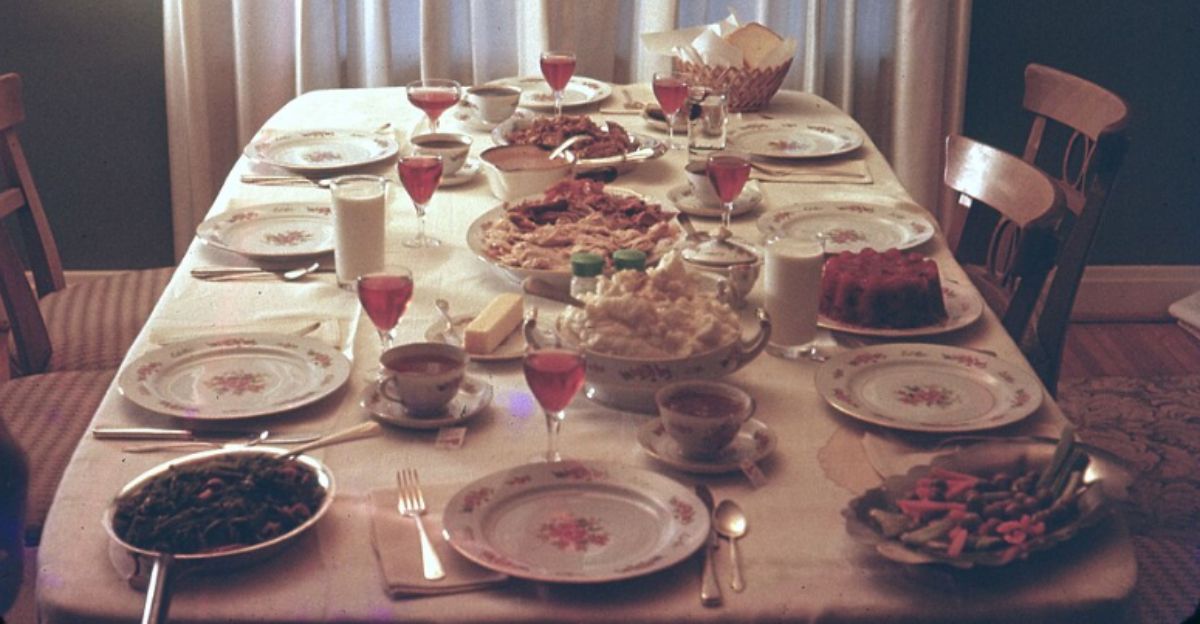
In the 1960s, no one sat down before the head of the family. This rule maintained family hierarchy and respect for age. Today’s egalitarian ways of eating would make this seem old-fashioned, but the practice instilled order and patience. Today’s rush and multitasking at the dinner table are far removed from the past.
This taboo also served to defer to social authority structures. Its decline reflects broader social patterns towards individualism and casualness, but also speaks to a decrease of rituals that had once been in observance to a collective ethos.
Asking To Be Excused
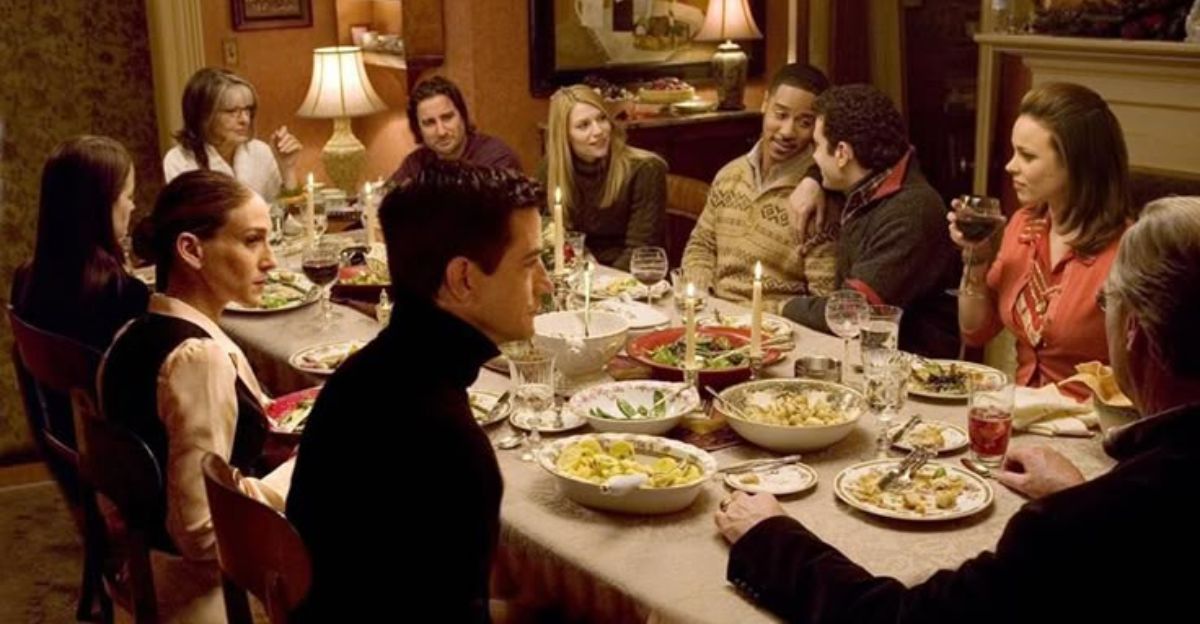
Leaving the table in the ’60s was a privilege, and it taught children patience and respect for family time. That seems oppressive to children today, who have grown up amid freedom and multitasking.
Nevertheless, such a practice increased interpersonal skills by encouraging empathy and awareness of others. Today’s rule breakdown is the product of today’s emphasis on independence and loss of family life in common.
It could create those little spaces of time when we might foster deferred gratification and reinforce family ties, which are in chronically short supply in the computer age.
Keep Your Mouth Closed When You Chew

Remember, silent chewing was not allowed in the 1960s, which is, above all, a matter of consideration for others’ eating experiences.
Noisy eating is now taken for granted but is a source of distress and social embarrassment. It shows this rule: etiquette is not just action and sensory ease in social life. Its retention or revival could improve social meals and teach empathy, feeling about how what one does will affect others.
It’s a quiet but strong insistence on the reality that manners exist for social peace, not fanciful convention.
No Phones At The Table
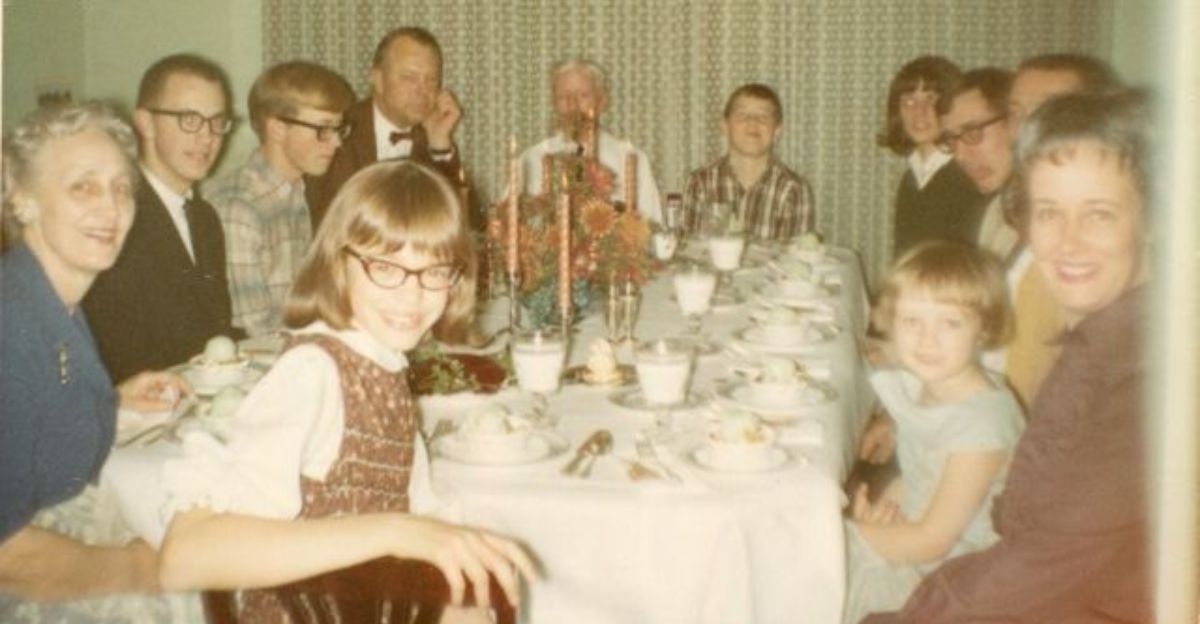
While phones weren’t on the dinner table during the 1960s, people could maintain the principle of undivided attention. The talk occurred without a pause in a digital workspace that framed attention and presence.
Screen disruptions stop communication dead and are a struggle for families in the digital era. From presence to absence, it indicates a profound cultural shift..
Restoring real conversation and emotional connection during dinner without cell phones could reverse the isolating effects of excessive use of technology. Due to technological necessity, the 1960s decree is a timeless model for thoughtful family conversation.
Sharing Food in the Correct Order

Dishes were to be passed clockwise around the table set of the 1960s, never over one another. This small regulation promoted justice and order, preventing mayhem and promoting collaboration. The casual nature of today results in people reaching over plates or grabbing without consideration.
This etiquette is a social compact—dinner as a face-to-face, civil experience. Its disappearance follows diminished ritualized social practices, but challenges one to think about how small rules can foster civility and alleviate conflict in shared space.
Formal Clothes Wearing
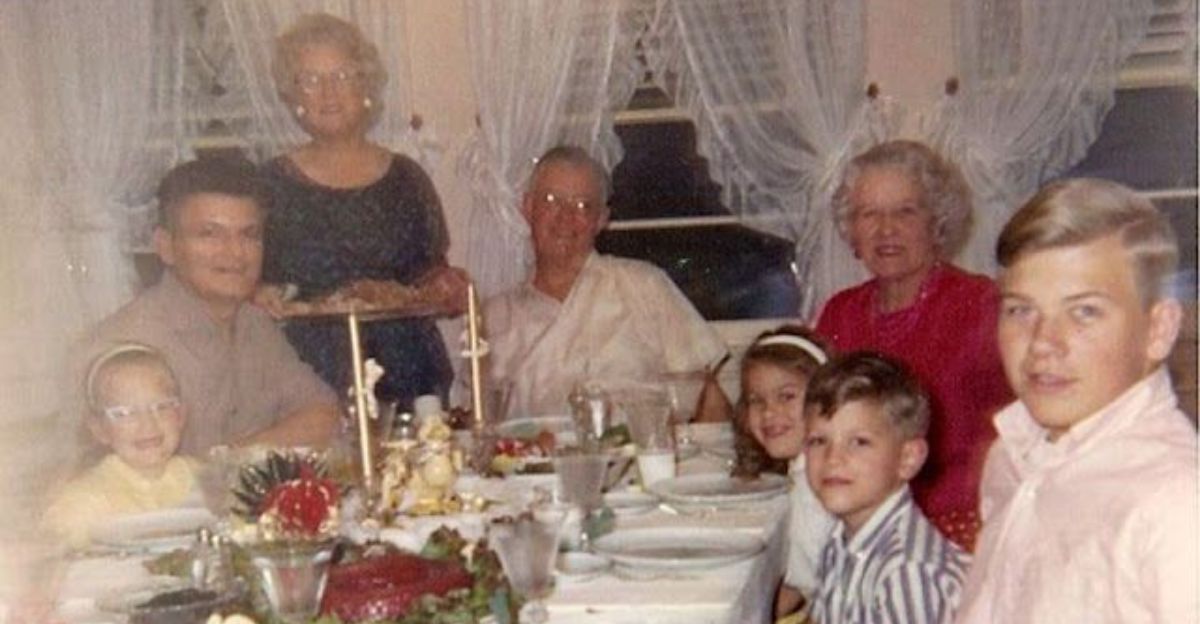
In the 1960s, etiquette and tableware were ways we showed consideration for our guests as much as for the occasion. Kids used to wearing jeans and tees at the dinner table would be scandalized if they saw what passes for dinner dress today as a communal experience.
Today’s informality is a reaction to shifting values. Resuscitating this habit would turn dinner times into special events rather than drudgery. Returning to dinner-making as a tradition would turn meals from routine to acts of love.
The meal is the focus; a history of ignoring these could lead to a loss of respect and ceremony in dining.
Clean Up After Yourself
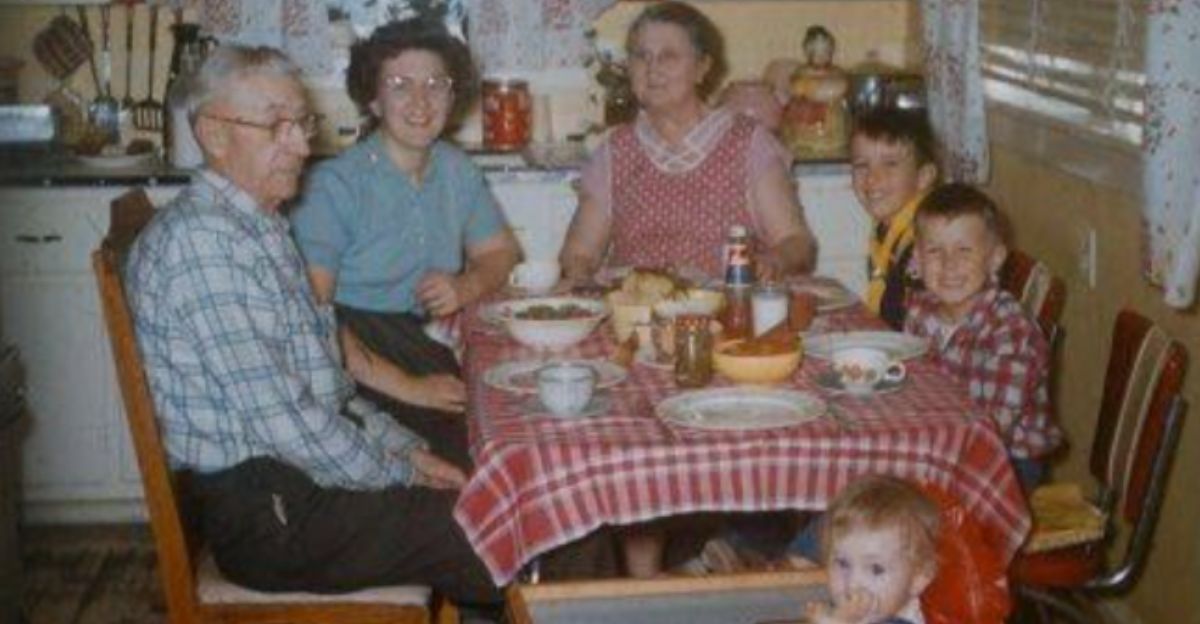
Parents taught children of the 1960s to clean up after themselves, which was an expression of economic necessity and encouraged consideration. Today’s emphasis on listening to hunger pangs and avoiding food waste is the reverse.
Yet the old rule bred respect for food and awareness of scarcity. In a world of plenty and wastage, the rule could breathe respect for the environment and finite resources.
It also has implications for psychological theories of discipline and delayed gratification, two virtues that are in short supply in today’s pleasure-seeking culture.
NO Talking With Food In Mouth
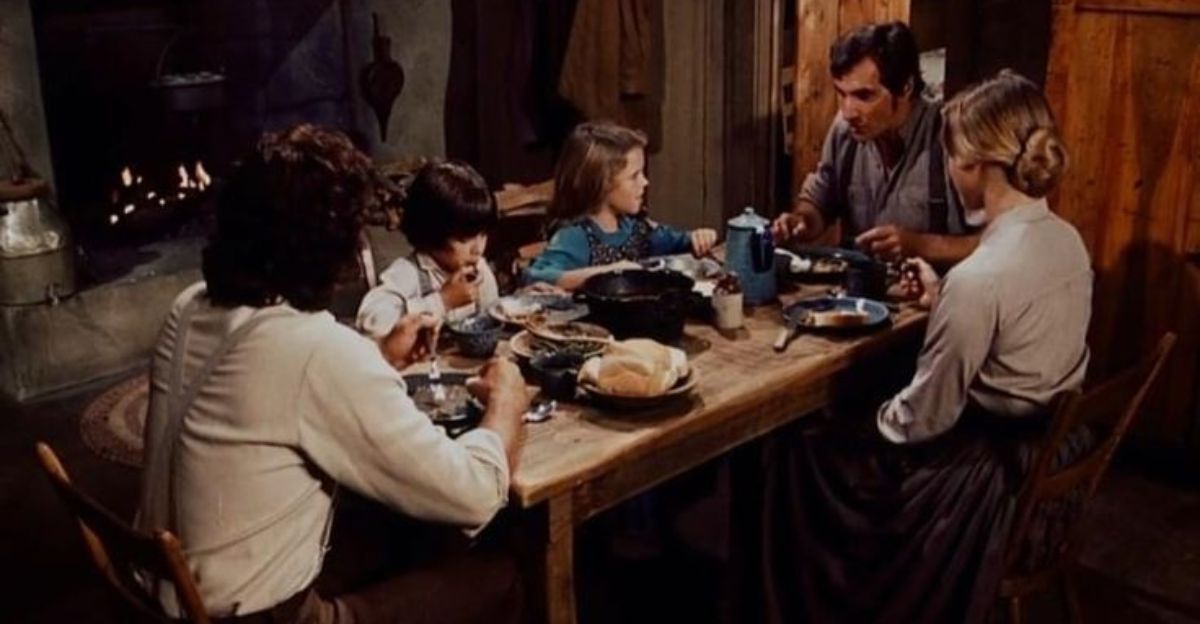
Only saying something after swallowing was a strict order, which ensured politeness and clarity. Multitasking at meals today too often amounts to talking during dinner, which might be annoying or dangerous.
The rule being enunciated and plain speech, for respect, had reinforced the richness of dining. The abandonment of this formality is a sign of growing social modernity and, at the same time, of decreasing speaking decorum.
Following this rule could improve social interactions, reduce discord, and foster mutual respect during meals.
Waiting For Everyone To Finish
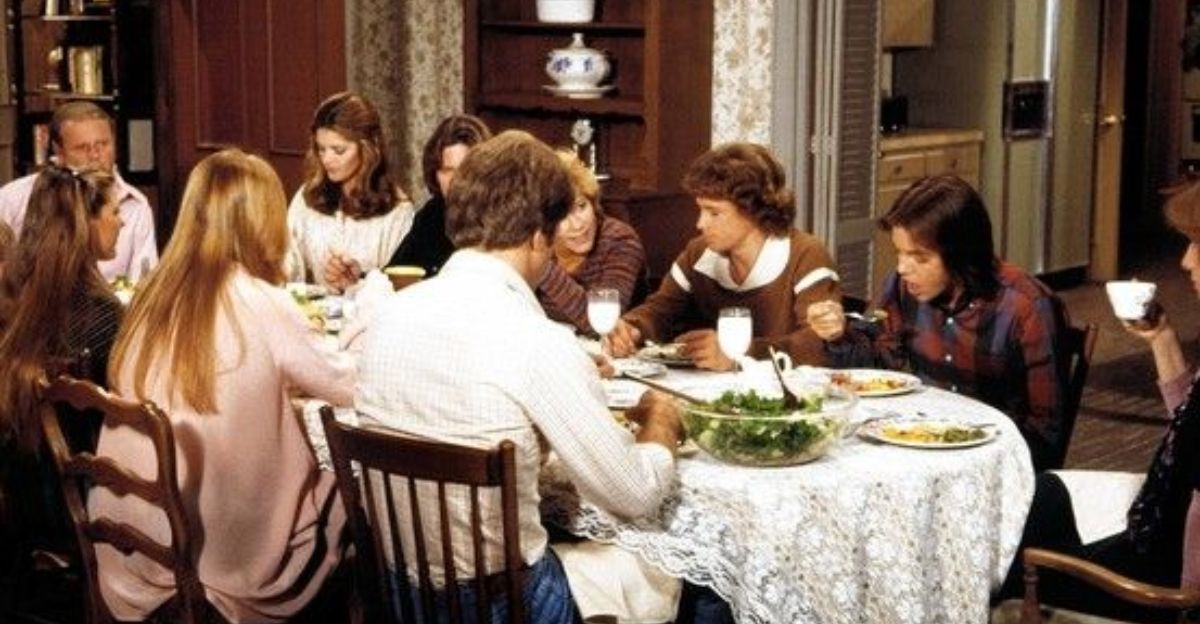
One was for everybody to sit and wait until everybody had stopped eating, which means we all encouraged oneness and patience with one another. Current lifestyles are causing individuals to set their own pace and to break up group events.
This statute promoted unity and consideration for other people’s pace. Its absence illustrates fragmentation in society but enforces slowing down to unite. Adopting this practice again could foster more intimate family relationships and counteract isolation and diversion prevalent in modern meals.
